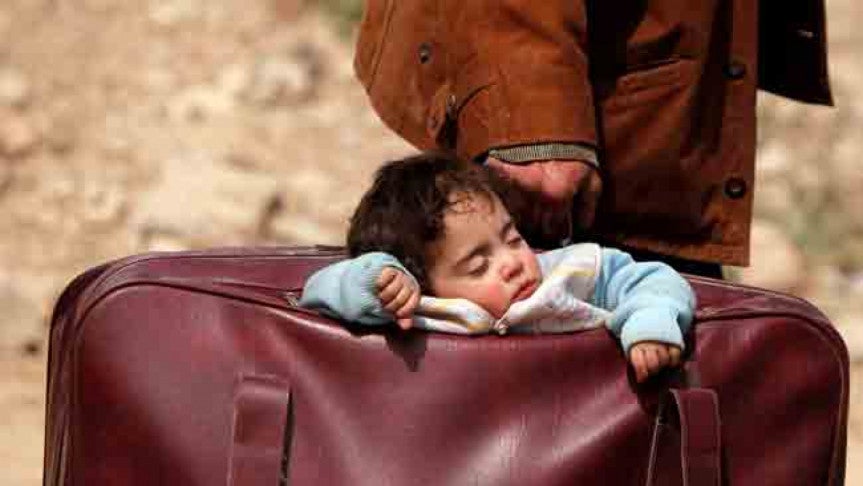Thousands flee from Syria's besieged eastern Ghouta

Eastern Ghouta: Thousands of Syrian civilians fled from a rebel pocket in eastern Ghouta on Thursday, crossing by foot to army positions in the first mass exodus from the besieged enclave since Syrian government forces launched an assault to capture it a month ago.
Men, women and children staggered under the weight of blankets, bags and suitcases as they walked along a dirt road to army lines on the outskirts of Hammouriyeh town. Some wept.
One man carried a baby in a suitcase, the child’s head and arms peaking out through the zipper. Others reached government positions in the nearby town of Beit Sawa on wheelchairs.
‘We had been trapped in the basements and did not dare come out, in the cellars and tunnels,’ a man who left the rebel pocket to government territory told Reuters on the outskirts of Hammouriyeh. ‘We could not do anything.... There was no food.’
‘There was no water, no electricity, no education for the children,’ said another man from Hammouriyeh, Amer al-Shourbaji.
Another man, who gave his name as Abu al-Nour, told Reuters he had been in contact with people in army territory for days trying to arrange safe passage out.
‘For eight days, we have coordinated with the soldiers, telling them we want to get the civilians out,’ he said.
The exodus could prove a key moment in eastern Ghouta, one of the seven-year-old war’s biggest battles, in which the fate of civilians trapped in the siege zone has been central.
The United Nations has estimated 400,000 people had been under siege in eastern Ghouta, the last large rebel bastion near the capital Damascus, with little access to food or medicine.
The government and its Russian allies have been pounding the area with air strikes since mid-February and launched a ground assault that has seized much of the territory since last week, cutting towns off from each other.
Fighting has raged on there despite a U.N. Security Council demand for a ceasefire. Moscow and Damascus argue the enemies they target are members of terrorist groups unprotected by the truce. They say rebels are preventing civilians from escaping.
The rebels deny this and say most residents are now fleeing because of the government’s bombs falling on Ghouta.
The UK-based Syrian Observatory for Human Rights, which monitors the conflict, said at least 12,500 people left towards government territory. They came out of Hammouriyeh and Jisreen, which the army advanced into on Thursday, and other towns nearby.
‘Every hour, over 800 people are leaving,’ Russia’s RIA news agency cited Major General Vladimir Zolotukhin as saying.
Moscow has offered safe passage out to rebel fighters willing to surrender the territory, a tactic that has helped Damascus and its allies regain control over major cities in western Syria. The opposition says that amounts to forced displacement.

 Reuters
Reuters



